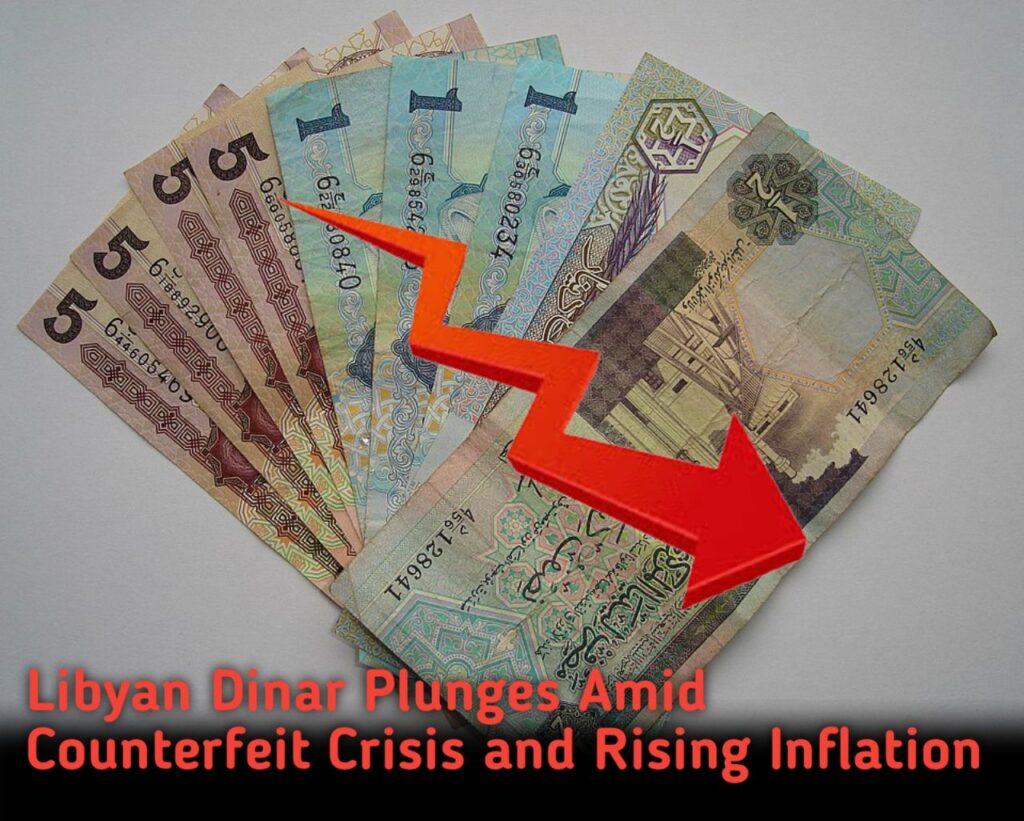Economic Struggles Deepen in Misrata and Beyond
The Libyan dinar is rapidly losing value, with the gap between the official and black market exchange rates widening. While the official rate stands at 5.4 dinars to the U.S. dollar, on the black market it trades for around 8 dinars, pushing everyday prices higher.

Rising Costs Burden Locals
At a grocery store , locals say the cost of basic goods is rising daily. “Right now, life has become very difficult. Many cannot afford basic goods. Today if you buy something, in three or four days the same product will be more expensive. Businessmen don’t look to the citizens, and the government is not helping,” said one shopper.
Counterfeit Currency Fuels Crisis
The crisis is compounded by recent actions taken by Libya’s Central Bank, which earlier this year recalled the 50 dinar note amid concerns over counterfeit currency flooding the market. For years, Libya’s central banking system was split. The internationally recognized government in Tripoli printed its currency in the UK, while a parallel authority in eastern Libya—backed by warlord Khalifa Haftar—began printing alternative currency in Russia starting in 2015.
According to the central bank, more than $1.2 billion worth of 50 dinar notes were printed in Russia by eastern authorities. In a bid to unify the monetary system in 2023, Tripoli’s central bank accepted the Russian-printed notes. But during the recent recall, it identified over $650 million in counterfeit 50 dinar notes that were not registered.
Economic Instability and Loss of Trust
Economics professor Khaled Dilfag says the unregistered Russian notes have worsened Libya’s economic instability. “They’re regarded counterfeit because they weren’t registered by the central bank. They were used to buy foreign currency, which caused inflation and prices to rise,” he explained. “People have lost trust in the banks, and the dinar has lost credibility internationally as a result.”
Future Challenges and Currency Recall
The central bank now estimates nearly $2 billion worth of 50 dinar notes were printed in Russia—alongside other denominations. As a next step, the bank is set to recall the 20 dinar note by September 30. With Russian-printed notes still widely in circulation, Libya’s government may be forced to absorb the unregistered currency as public debt. Experts warn this move could further weaken the dinar, accelerating inflation and worsening economic hardships for a population already under strain.



